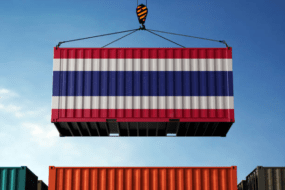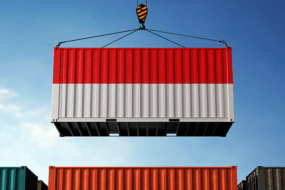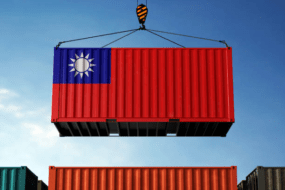- Home
- Trade News
- Bangladesh Oil Cuts: A Strateg ...

Significant changes are taking place in Bangladesh’s oil trade strategy as the country reassesses its energy environment in order to move toward a more sustainable future. The government agency in charge of energy affairs, the Bangladesh Petroleum Corporation (BPC), is leading this revolutionary project. We will explore the goals, plans, and anticipated results of Bangladesh’s energy transition in this blog, emphasising how the country’s oil trade policies will shape its sustainable future.
Unlock the contents of this blog! Click the links provided below to access your desired sections:
- Brief background on Bangladesh’s current oil trade situation
- Bangladesh’s plan to reduce oil product imports and increase crude inflows
- Reasons behind the strategic shift and its expected impact
- Recap of the anticipated changes in Bangladesh’s oil trade strategy
- Conclusion
Brief background on Bangladesh’s current oil trade situation

Bangladesh knows how important it is to lessen its reliance on traditional petroleum products to produce energy, such as gasoil and high sulfur fuel oil (HSFO). Like Bangladesh, Turkey relies heavily on its oil and petroleum sector to fulfill its energy requirements. This insight is the result of two concerns: reducing the harm to the environment and enhancing energy security. As a result, the country has started to gradually shut down its gasoil and HSFO-fired power facilities, signifying a major shift to cleaner energy sources including LNG imports and coal. This tactical move demonstrates Bangladesh’s dedication to sustainable development and is consistent with international efforts to mitigate climate change.
Bangladesh’s plan to reduce oil product imports and increase crude inflows
With a target of importing 6.51 million metric tons (mt) of refined products, BPC plans to reduce its imports of petroleum products by 15.34% by 2024. Meanwhile, the company intends to increase its imports of crude oil by 7.14%, or around 1.5 million metric tons, made possible by the opening of a single-point mooring facility. By utilising infrastructural developments to diversify its energy portfolio and increase energy resilience, Bangladesh is demonstrating its commitment to these goals through this calculated move.
Reasons behind the strategic shift and its expected impact

Bangladesh has strategically shifted its power generation from petroleum products to coal and LNG due to changing market dynamics and changing energy demands. In the energy industry the U.S. and Russia also faced some changes last year. US crude oil production and demand experienced a sharp increase in 2023. Besides, in 2023, as a measure to stabilise the domestic fuel market Moscow announced a temporary pause in gasoline and diesel exports to all countries, excluding four former Soviet states.
Falling demand for gasoil combined with an increasing requirement for coal shows the need for gradually shutting down outdated power units. In addition, the increase in imports of crude oil is expected to strengthen energy security and maximise processing capacities at major refineries, most notably the Eastern Refinery.
Recap of the anticipated changes in Bangladesh’s oil trade strategy
In order to lessen dependency on petroleum products, promote the shift to cleaner energy sources, and fortify its energy infrastructure, Bangladesh has made significant changes to its oil trading policy. Bangladesh aims to demonstrate its leadership in advancing sustainable energy practices in the area by utilising a blend of inventive strategies and cooperative alliances. In addition to highlighting Bangladesh’s dedication to environmental stewardship, this strategic course positions the country as a model of progress and resilience in the face of changing energy challenges. Bangladesh is well-positioned to handle the complexity of the energy scene with a forward-thinking strategy, guiding the country toward a sustainable and prosperous future.
Conclusion
The strategic recalibration of Bangladesh’s oil trade dynamics appears to be a crucial step in achieving long-term sustainability and self-reliance as the country sets out on this journey towards energy transformation. Bangladesh offers an example for responsible energy governance by balancing economic needs with environmental care, demonstrating its commitment to ensuring a better and more affluent future for future generations.
The most trusted and reliable destination for Trade Data.
Want to keep up with the latest trends in the energy sector? TradeData.Pro is your solution! Companies interested in staying informed about emerging industries across different countries can find all relevant information on the TradeData.Pro platform.
Since TradeData.Pro‘s introduction in 2018, it has been praised by the market for its broad coverage, affordability, and prompt responses. Many prominent companies spanning diverse industries have become subscribers to TradeData.Pro.
Explore the trade database demo to discover specific products of interest effortlessly here.
To understand how TradeData.Pro works, watch the video below or visit https://www.youtube.com/watch?v=tITfUvjs6Gc.
PS: Read this blog post to learn about how to leverage Import & Export Data in Trade.
Your Trusted Source for Trade Data: TradeData.Pro.
Trade Data Pro stands as a beacon of reliability in the sphere of trade data, originating from the economically robust and politically stable environment of Singapore. This esteemed platform is a brainchild of the Commodities Intelligence Centre, a notable government-linked entity and a synergistic joint venture involving Zall Smartcom, Singapore Exchange (SGX), and Global eTrade Services (GeTS). Since making its debut in 2018, Trade Data Pro has garnered acclaim for its expansive coverage, cost-effectiveness, and swift response time, earning prestigious accolades such as the Singapore Quality Class (2020), Stevie Award Gold (2021), Crozdesk 2023 Happiest Users Award, 2023 Slashdot Top Performer, and 2023 Source Forge Top Performer.
With widespread recognition, Trade Data Pro has been spotlighted in numerous reputed news outlets, including Bloomberg, Business Times, MarTech Series, ACN News, and more, further cementing its status as a reputable source in the industry. User satisfaction remains paramount, reflected by stellar average ratings of 5 stars on leading review platforms like SourceForge, Capterra, G2, and others. This unanimous user acclaim speaks volumes about the platform’s unyielding commitment to quality and customer satisfaction.
In a world where procuring pivotal data for unmasking trends, pinpointing market openings, keeping tabs on the competitive landscape, and comprehending supply chain potential has traditionally been daunting, Trade Data Pro simplifies this endeavour. The platform meticulously collates and curates shipment data mandated by governmental import-export filings, presenting it as actionable business intelligence. This treasure trove of information facilitates a crystal-clear understanding of goods movement across international borders and is encapsulated within the largest searchable trade database globally available.
For businesses eyeing the vibrant Vietnamese industry, Trade Data Pro offers up-to-date data. Engage with our intuitive platform to discover products that align with your interest by exploring our trade database demo: Vietnam Import Export Data. For historical insights into penetrating new markets, kindly visit our Trade Database Demo.
For a dynamic understanding of our platform’s operations, view the video linked below or visit YouTube. With Trade Data Pro, you’re not just accessing data; you’re unlocking a gateway to informed, strategic global trade decisions.








